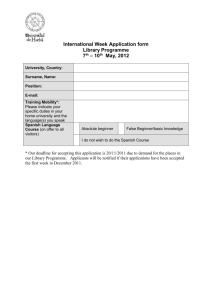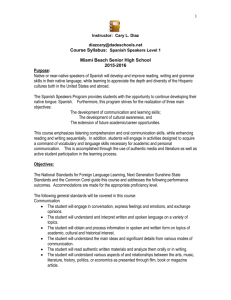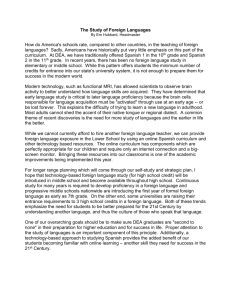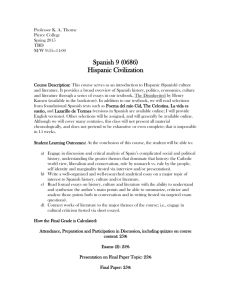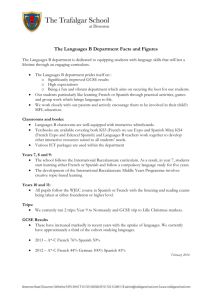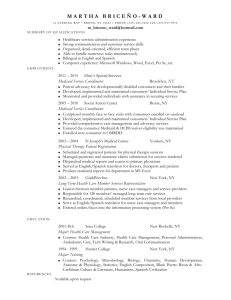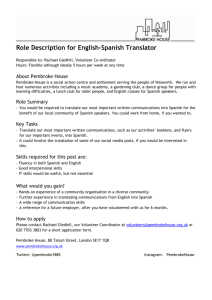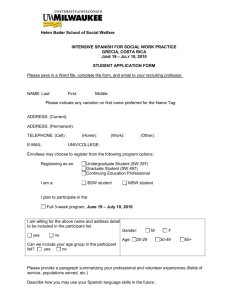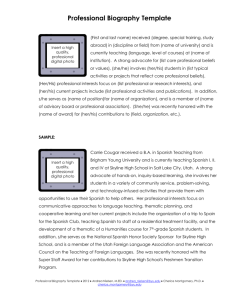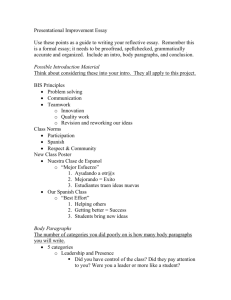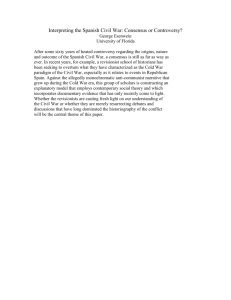Clary Loisel New Course for the Spring Semester 2010 SPAN 450
advertisement
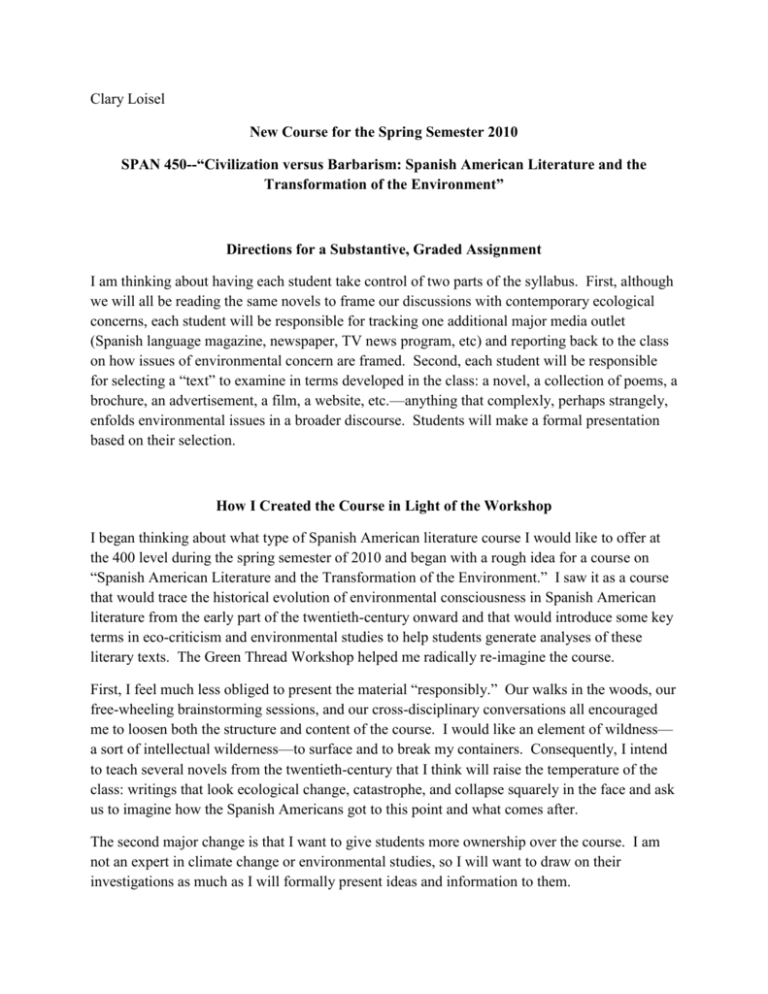
Clary Loisel New Course for the Spring Semester 2010 SPAN 450--“Civilization versus Barbarism: Spanish American Literature and the Transformation of the Environment” Directions for a Substantive, Graded Assignment I am thinking about having each student take control of two parts of the syllabus. First, although we will all be reading the same novels to frame our discussions with contemporary ecological concerns, each student will be responsible for tracking one additional major media outlet (Spanish language magazine, newspaper, TV news program, etc) and reporting back to the class on how issues of environmental concern are framed. Second, each student will be responsible for selecting a “text” to examine in terms developed in the class: a novel, a collection of poems, a brochure, an advertisement, a film, a website, etc.—anything that complexly, perhaps strangely, enfolds environmental issues in a broader discourse. Students will make a formal presentation based on their selection. How I Created the Course in Light of the Workshop I began thinking about what type of Spanish American literature course I would like to offer at the 400 level during the spring semester of 2010 and began with a rough idea for a course on “Spanish American Literature and the Transformation of the Environment.” I saw it as a course that would trace the historical evolution of environmental consciousness in Spanish American literature from the early part of the twentieth-century onward and that would introduce some key terms in eco-criticism and environmental studies to help students generate analyses of these literary texts. The Green Thread Workshop helped me radically re-imagine the course. First, I feel much less obliged to present the material “responsibly.” Our walks in the woods, our free-wheeling brainstorming sessions, and our cross-disciplinary conversations all encouraged me to loosen both the structure and content of the course. I would like an element of wildness— a sort of intellectual wilderness—to surface and to break my containers. Consequently, I intend to teach several novels from the twentieth-century that I think will raise the temperature of the class: writings that look ecological change, catastrophe, and collapse squarely in the face and ask us to imagine how the Spanish Americans got to this point and what comes after. The second major change is that I want to give students more ownership over the course. I am not an expert in climate change or environmental studies, so I will want to draw on their investigations as much as I will formally present ideas and information to them.






